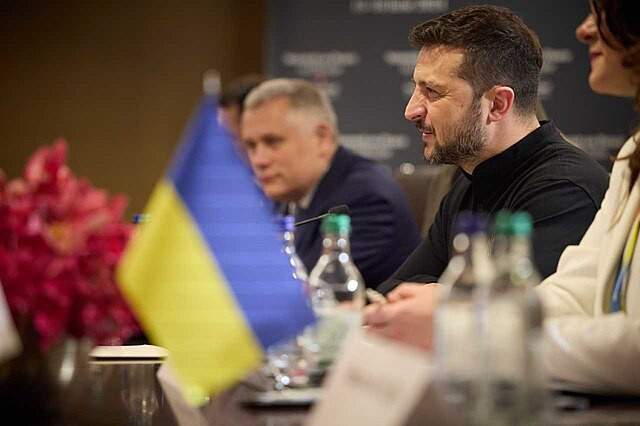Three weeks after Ukraine's audacious incursion into Russia's Kursk region, the broader implications of this military maneuver are still unfolding. Ukrainian President Volodymyr Zelenskyy has described the offensive as a strategic move to establish a "buffer zone" and to mitigate Russian threats to the Ukrainian cities of Kharkiv and Sumy. The operation, which resulted in the capture of hundreds of Russian soldiers and control over nearly 500 square miles, has significantly altered the dynamics on the ground.
In a recent statement, Zelenskyy emphasized the strategic gains of the Kursk incursion, asserting that the operation has successfully diverted Russian resources and attention. "We have created a buffer zone that will protect Kharkiv and Sumy from further Russian aggression," Zelenskyy noted in his nightly video address. Despite these claims, the impact of the Ukrainian offensive is being closely analyzed by military experts and analysts.
Zev Faintuch, head of Research and Intelligence at Global Guardian, commented on the offensive's broader implications. "The operation has a 'taste-of-your-own-medicine' logic," he said. "While its tactical benefits are still under scrutiny, it has certainly bolstered Ukrainian morale and sapped Russian confidence." Faintuch suggests that the incursion could prompt internal dissent within Russia and alter the diplomatic landscape, potentially leading to a more favorable negotiating position for Ukraine.
However, the offensive has not been without its challenges. The Russian response has been harsh, with Moscow launching a major missile and drone attack across Ukraine on Monday, which resulted in civilian casualties and significant disruptions to power and water supplies. "Like most previous Russian strikes, this one was just as vile, targeting critical civilian infrastructure," Zelenskyy remarked in response to the attacks.
The ongoing conflict has also seen intense developments in other regions. In the Donetsk region, Russian forces have intensified their advance, forcing evacuations from frontline areas and causing widespread destruction. Ukrainian officials reported that recent Russian shelling and airstrikes have resulted in numerous casualties and infrastructural damage, further straining the war-torn nation.
Pavel Luzin, a senior fellow at the Center for European Policy Analysis, questioned the long-term significance of Ukraine's control over various Kursk villages. "The term 'control' may be somewhat ambiguous," Luzin said at a recent forum. "If Ukrainian forces simply move into a town where local administrations have fled, it remains unclear whether this signifies substantial control or merely temporary occupation."
In Moscow, the Kremlin has downplayed the impact of the Kursk incursion. Russian President Vladimir Putin has attributed the breach to Western provocations, despite U.S. officials denying any foreknowledge of the operation. "The incursion is a major provocation orchestrated by the West," Putin asserted, framing the offensive as a manipulation of Ukrainian forces.
Former Russian President Dmitry Medvedev has taken a more aggressive stance, suggesting that Russia should expand its objectives to encompass all of Ukraine and to decisively defeat Ukrainian forces. "We should mercilessly defeat and destroy the enemy," Medvedev declared, signaling a potential escalation in Russia's war aims.
Joe Chafetz, an intelligence analyst at Global Guardian, emphasized the strategic complexity introduced by the Ukrainian incursion. "Kyiv's move into Kursk has demonstrated their capability for sophisticated mechanized advances," Chafetz said. "If Ukraine can replicate this success, it may undermine Russia's incremental advances and compel a reassessment of its strategy."




